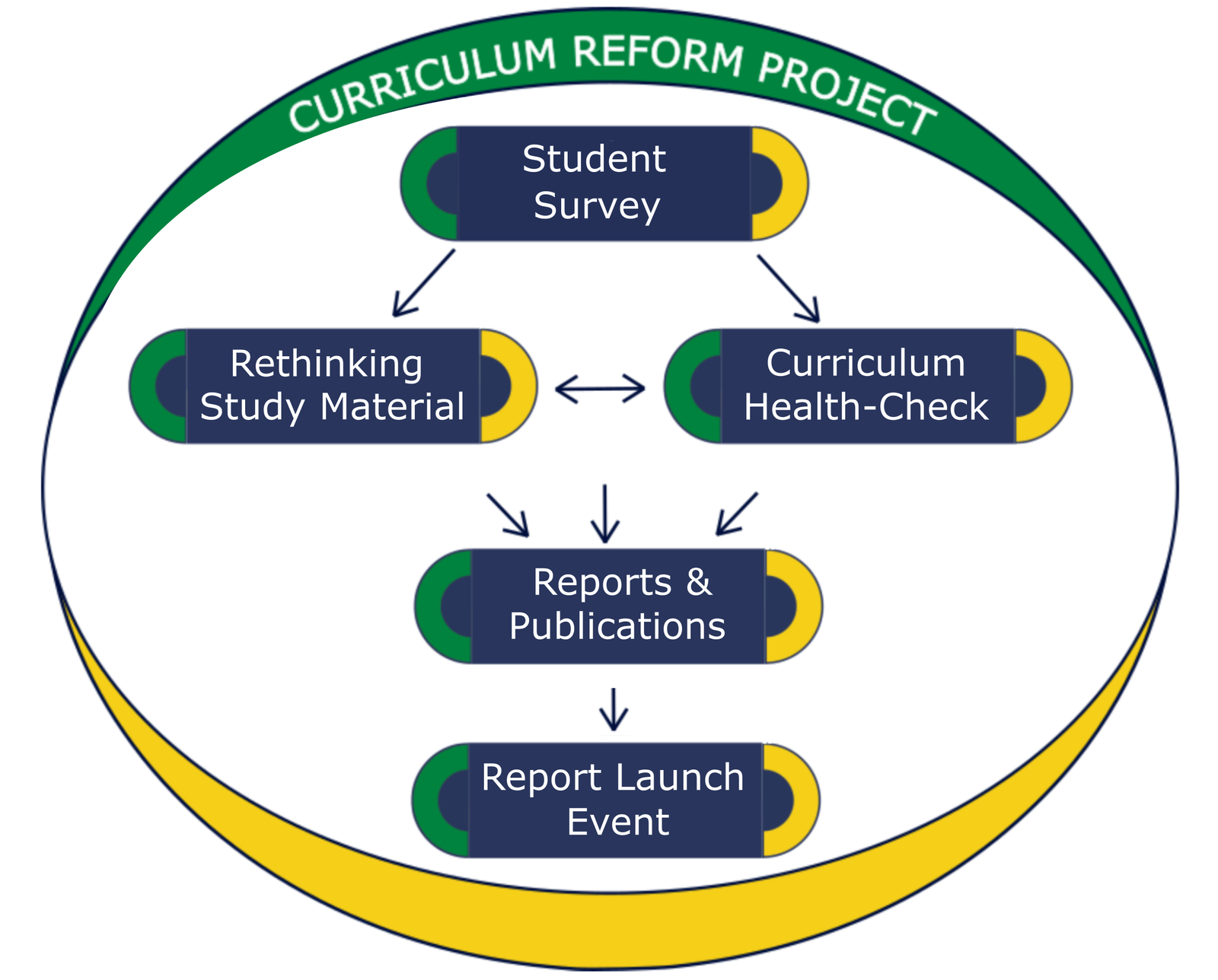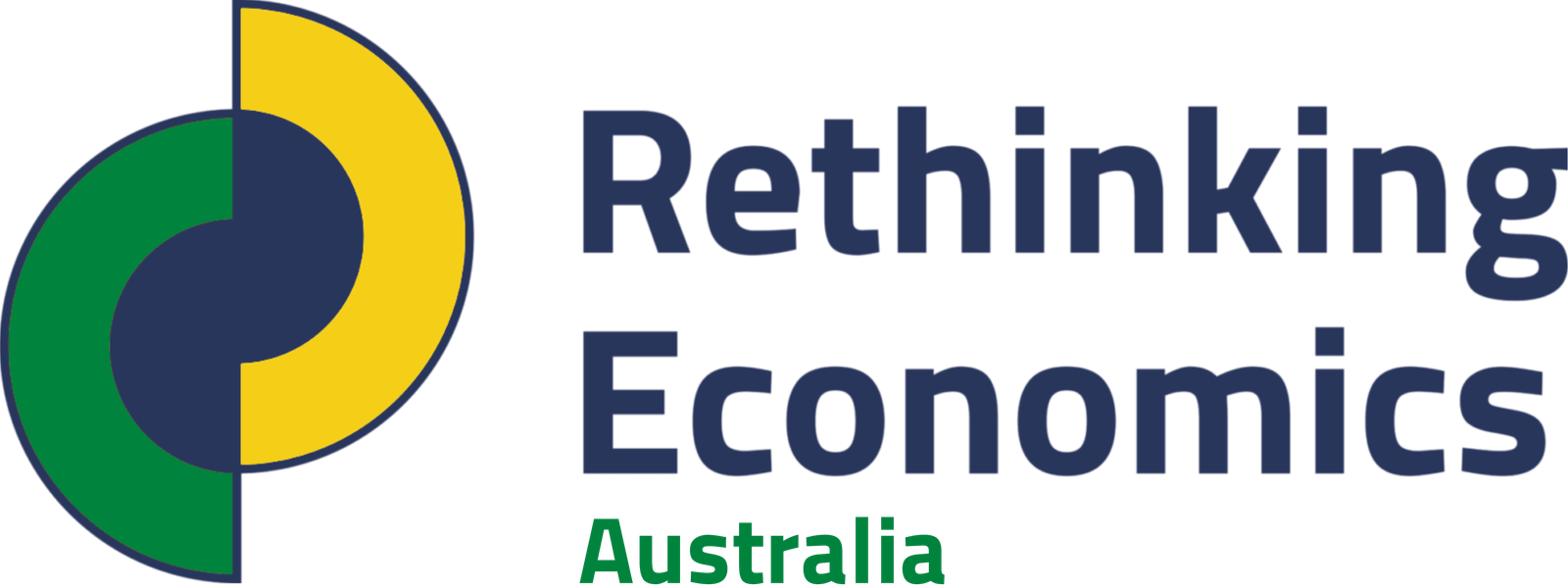Research

Our project is inspired by the 1970s dispute regarding the economics curriculum at the University of Sydney. It is based on the five activities below, all made possible through a combination of international and local funding. In addition to covering the cost of our upcoming report launch event, this has allowed us to provide a small research stipend to each member of the research team and subsidise travel and accommodation for the forthcoming event. We are grateful to our members, partners, and patrons for making this work possible.

The project kicked off with a student survey in 2023. This revealed student needs and hinted at important topics being left out of the economics curriculum. Survey results allowed us to start rethinking study material in some initial areas of concern while planning a deeper curriculum health-check to better understand the extent of the problem. These two activities (rethinking study material and investigating what is missing from the curriculum) are co-dependent and build on each other. We also make reports and publications available as we go, for example, our student survey results were published in 2023, and a capstone report will be compiled in 2025 with the completion of the curriculum health-check and presented at a Report Launch Event. Finally, we can return to rethinking study material to provide an up-to-date study module or workshop.
Below we discuss these five parts of our Curriculum Reform Project in detail:
1. Student Survey
Completed in 2023, our Economics Curriculum Survey aimed to study student sentiment toward the state of the economics curriculum in Australia and direct further study into the curriculum. The survey was promoted by lecturers in classrooms, in newsletters and on posters at university billboards. To encourage responses, three book prizes were up for grabs! In January 2023 we announced the winners through drawing names at random from the pool of respondents. Our book prizes included ‘Science and the Economic Crisis’ by Francesco Labini, ‘Money in One Lesson’ by Gavin Jackson, and of course ‘Doughnut Economics’ by Kate Raworth.
(See Section 4, Reports & Publications (below) for the written report, video presentation, and collected data).
2. Rethinking Educational Material
Our rethinkers have already gotten to work by co-authoring educational articles to address some initial areas of concern:

The above learning material is a collaborative effort of postgraduate RE student and graduate members working to reform the economics curriculum. The first and second articles have been published on the Exploring-Economics education platform while the third is underway.
Towards the completion of the Curriculum Reform Project, an up-to-date study module, incorporating everything we have learned, will be created. This involves publishing a collection of such articles by rethinkers and presenting it in a workshop or lecture series. This will take students beyond the perspectives and mainstream topics covered in their undergraduate degrees and introduce them to content that should be considered compulsory for all economics students. We aim to provide an alternative to ECON101, which is often compulsory for many social science and commerce students. However, to get to this point, two things are required: (1) Further research into economic, political and interdisciplinary concepts, and (2) a deeper curriculum study. As explained above, these two elements will guide each other as our project progresses toward completion in 2025.
From our survey results, our research up to this point, and engagement with experts on the Australian Curriculum, we have produced a working outline of the compulsory components that should form part of all economics degrees. This outline is used as a benchmark when our researchers perform a ‘curriculum health-check.’
3. Curriculum Health-Check
A deeper curriculum study, or ‘curriculum health-check’, is currently underway to reveal what is missing from undergraduate economics degrees. This study involves a review of the compulsory components of the flagship undergraduate economics courses at the eight largest universities in Australia. These eight universities, referred ot as the Group of Eight (Go8), stand particularly tall in international rankings.

In our newsletter of 1 October 2024, we advertised the opportunity for student members to join our curriculum health-check. On the 19th of that same month, we hosted an information session over Zoom for interested students where we explained what the curriculum health-check entails.
Students use a template to guide them through the process: They compare the (compulsory) study units of an economics degree to our benchmark document mentioned above.
Around 60% of the work on the Curriculum Health-Checks have been completed and work will soon start on the final report. The student members who are currently part of the curriculum health-check are:
– Dennis Venter (Masters student at University of Sydney)
– Mahesti Hasanah (Ph.D student at the University of Sydney)
– Jon Werner Nilsen (Masters graduate from Norwegian University of Life Sciences)
– Xinrui Hu (Masters student at the University of Sydney)
– Haonan Fan (Masters student at the University of Sydney)
– Ray Newland (Undergraduate student at Macquarie University)
– Peter Chou (Masters graduate from the University of Auckland)
This group forms a diverse range of students from economics and related disciplines. Being part of the study is not only a great way for students to get exposure and gain valuable research experience, but also an exciting opportunity to bring economic science in line with reality.
4. Reports & Publications
We report as we go. Our 2023 student survey results can be found in this report. Key findings from the report are:
i). Student satisfaction with mainstream economics courses deteriorates as these courses progress.
ii). Students enrolled in courses with a focus on heterodox schools of thought, such as political economy and ecological economics maintain a high level of satisfaction throughout.
iii). When asked to comment on what parts of their economics courses students are unsatisfied with, 70% of comments referred to unrealistic assumptions, mathematical equations that do not apply to the real world, and a lack of learning about environmental issues and history.
iv). A cornerstone finding of our survey was that the extent to which a mainstream economics student agrees with the statement ‘Mainstream economics is detached from the real world’ is lower in new students, increases in students who are roughly midway through their undergraduate degree, and is high in students who have or are about to graduate.
Please also see the spreadsheet containing survey responses arranged by group, and the video presentation of the results.
A final report will be published after all curriculum health-checks have been performed and compiled. We welcome anybody’s input. Feel free to let us know in what way you think the economics curriculum should be reformed. You may email us at contact@rethinkeconomics.org.au or you may submit an article to our blog publication.
5. Report Launch Event
In association with POPSS, we are in the early stages of planning a Report Launch for 8 December 2025 at the University of Sydney (and possibly with a workshop just ahead of this date). At the event, we will present our results and findings, hand over a hard copy of the report to the university, hear from faculty representatives, and facilitate discussion between students.
Lastly, we would like to congratulate our fellow rethinkers from the UK on their recent report on their economics curriculum as well as the rethinkers in the Netherlands on their report.
Thank you to our members, patrons, stakeholders and Rethinking Economics International for making this work possible!

